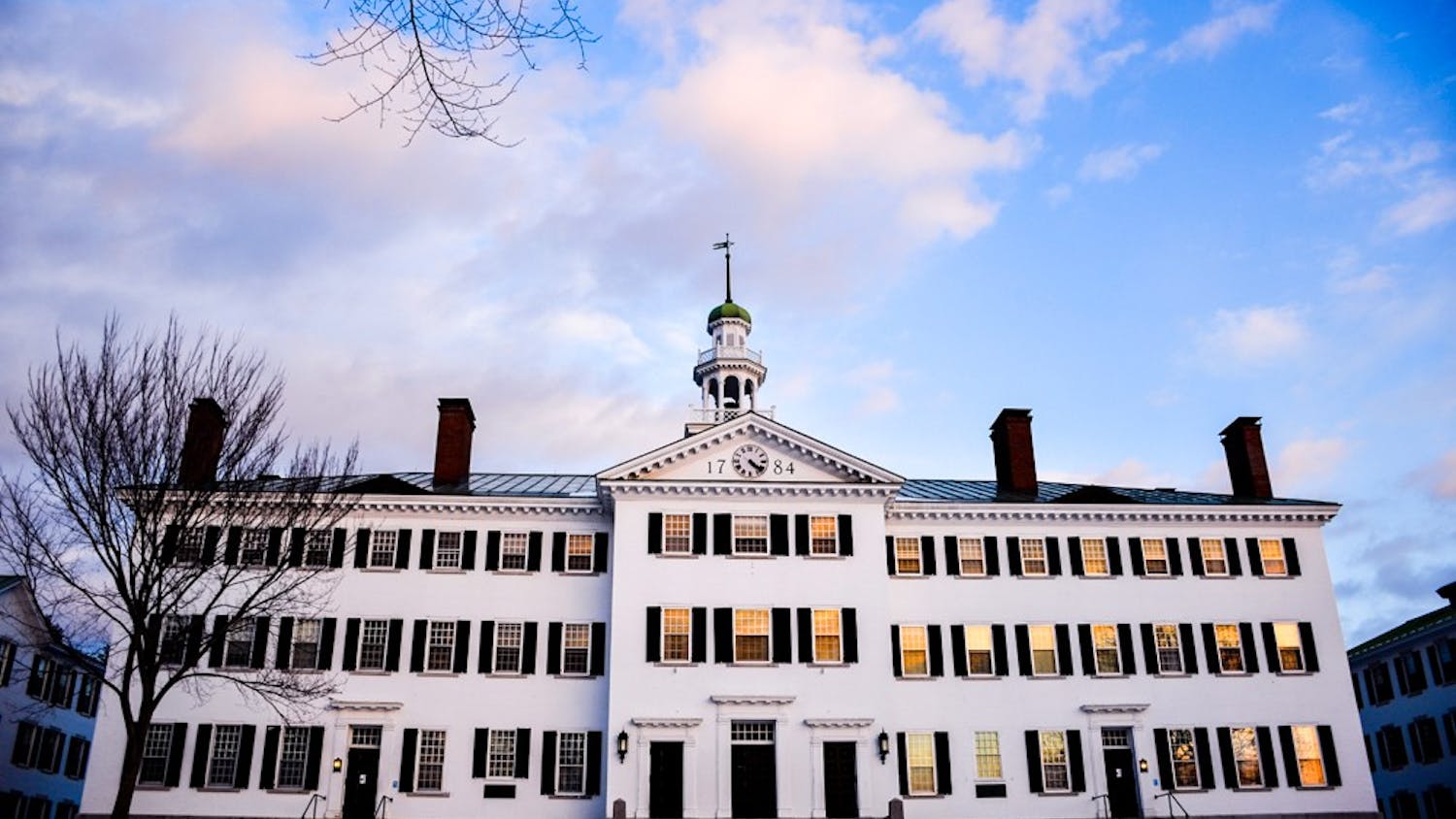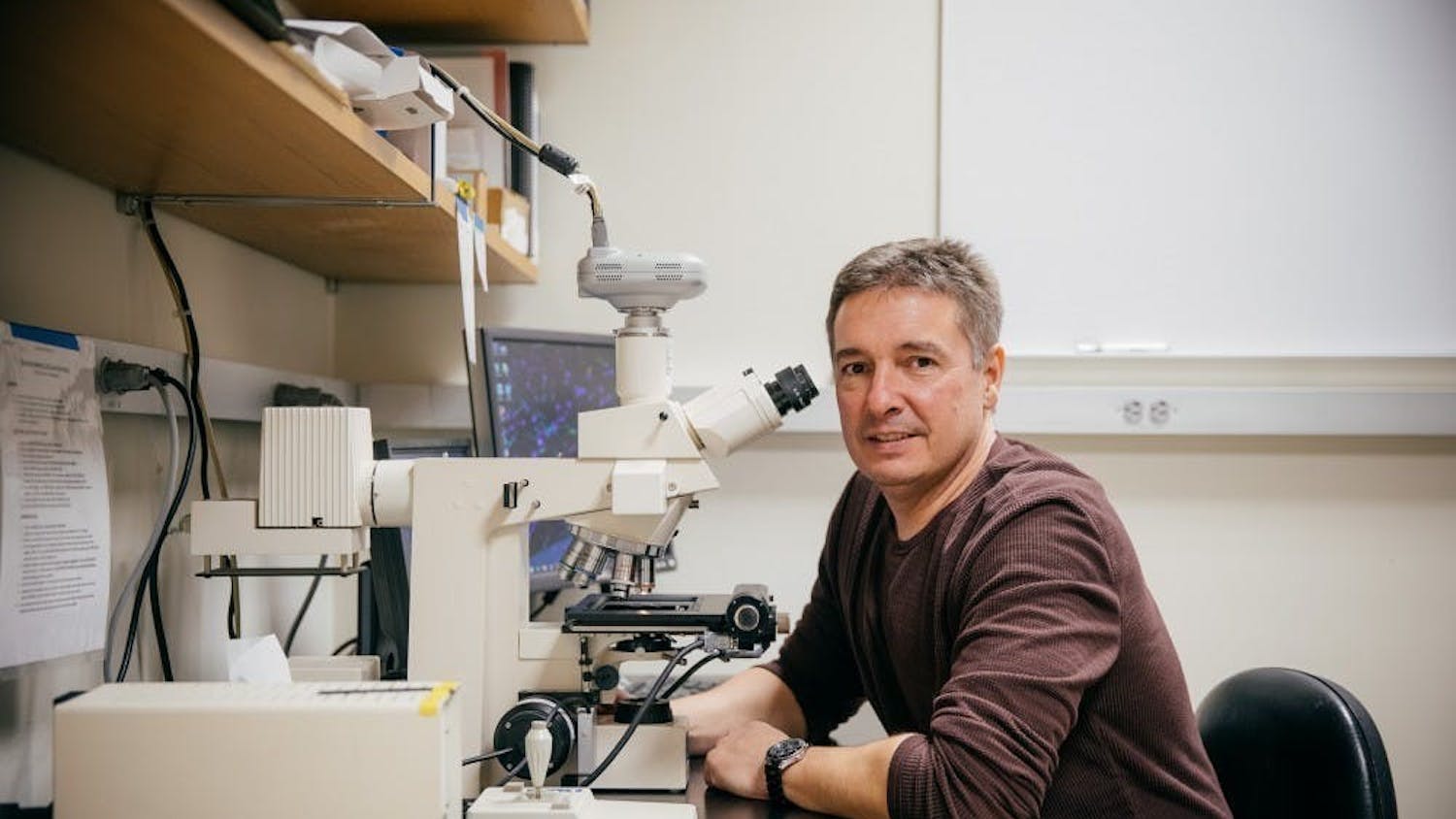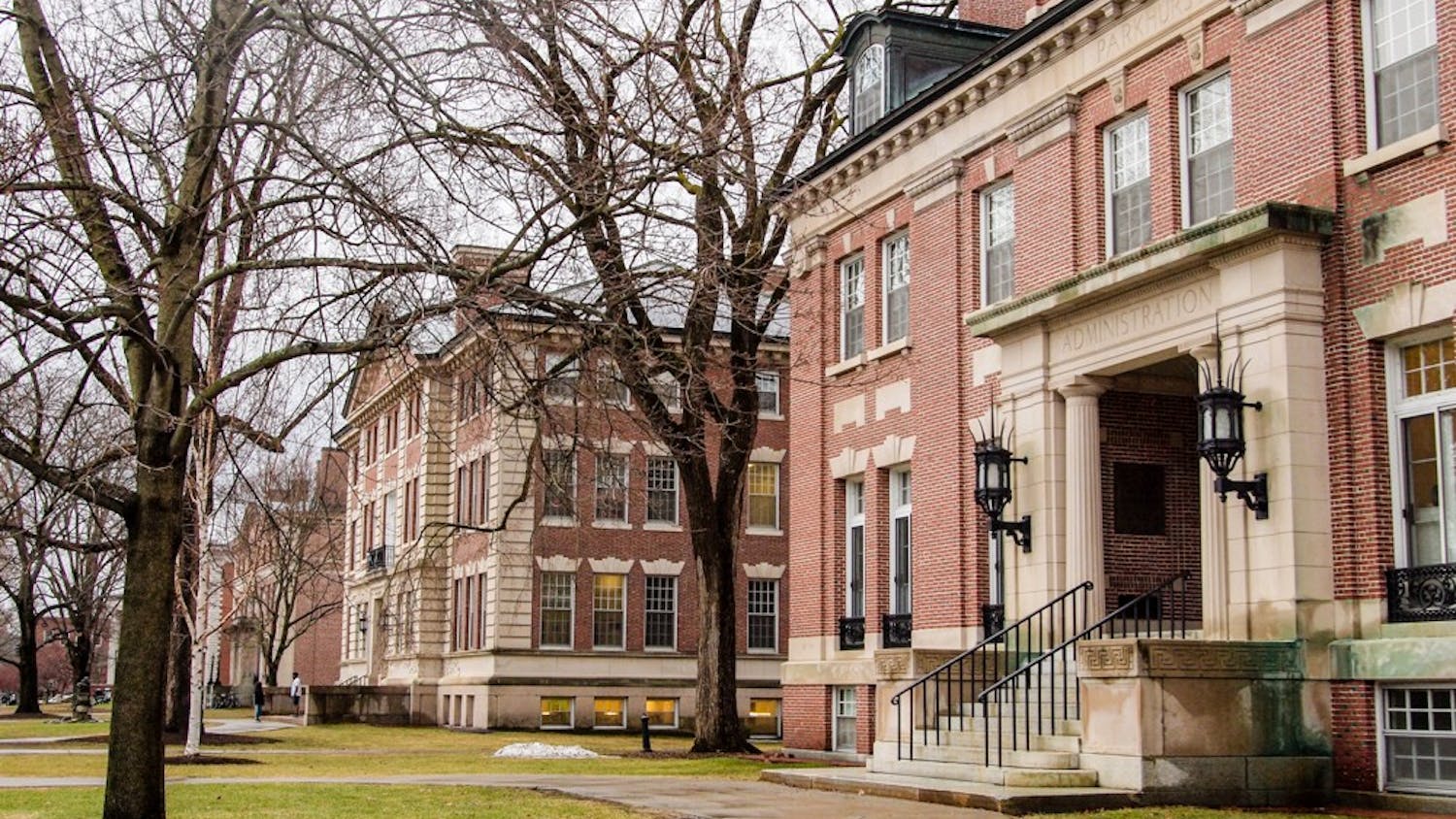This article is featured in the 2020 Winter Carnival special issue.
In the aftermath of the federal class action lawsuit that brought forth allegations of years of sexual misconduct by three former professors in the psychological and brain sciences department, the Dartmouth community has experienced a number of changes.
In November 2018, seven students — both current and former — sued the College, claiming that it had ignored over 16 years of sexual harassment by former professors Todd Heatherton, William Kelley and Paul Whalen of the PBS department. Two additional plaintiffs joined the suit in May 2019. This past August, the College and the plaintiffs reached a settlement, which was preliminarily approved by the judge last week.
The settlement includes a $14-million compensation for the current plaintiffs along with any other current or former student who can attest to having experienced sexual harassment by the three professors.
The settlement also sets aside a number of provisions on behalf of the College to prevent future incidents. It includes a pledge to add two more members to the Campus Culture and Climate Initiative’s external advisory board and a commitment to use the provost’s diversity recruitment fund to hire faculty with experience in gender-based discrimination and violence.
The settlement also reaffirms Dartmouth’s support for WISE — an Upper Valley organization committed to ending gender-based violence that the College has worked with in the past — by calling for adding additional WISE staff on campus or providing $500,000 to the organization over the course of five years.
Since the filing of the lawsuit in 2018, the PBS department has experienced a number of changes. College spokesperson Diana Lawrence wrote in an email statement that in the past, graduate students in the PBS department were typically supervised only by their Ph.D. advisor during the first two years of their program. The department has now implemented advisory committees for each student consisting of the student’s Ph.D. advisor, one other faculty members and a senior graduate student. The chair of the committee is required to be someone other than the student’s Ph.D. advisor.
“These committees will provide regular, individualized guidance for students and allow them to develop strong relationships with multiple faculty in PBS,” Lawrence wrote.
She went on to explain that a department-wide committee called the Inclusivity, Diversity and Climate Committee has been created. Comprised of faculty, staff and students, the IDCC has worked to “identify and implement department-level changes informed by input from faculty, staff and students in the department,” Lawrence wrote.
Members of the committee will also look to other institutions for practices that can be implemented here at Dartmouth. The IDCC has also begun the process of creating a department manual that lays out expectations for professional behavior and informs people looking for support and assistance about available resources, according to Lawrence.
The PBS department has also added a diversity tab to the department website that lists resources and “affirms its commitment to an inclusive community,” Lawrence wrote. The page also includes an online, anonymous suggestion box to solicit ideas to improve the department.
Lawrence also noted that the Title IX Office and Institutional Diversity and Equity Office have worked with the PBS department to provide information sessions and training to prevent factors such as implicit bias from interfering in the workplace. All members of the department also have access to a “diversity page” on Canvas that has information and resources regarding professional behavior and sexual misconduct.
In addition to these new resources and internal reforms, a number of changes regarding faculty have been made. PBS professor Brad Duchaine began his term as chair of the department on July 1, 2019. Duchaine succeeded David Bucci, who presided over the department during the time of the initial allegations, investigation and lawsuit. Bucci died by suicide on Oct. 15, 2019.
Lawrence said that the College has also made offers to five new faculty members in the PBS department during the current academic year. Tor Wagner was hired from the University of Colorado Boulder this past October as the inaugural Diana L. Taylor 1977 Distinguished Professor of Neuroscience. The other four offers were made to junior faculty members. Viola Stormer of the University of California in San Diego will begin at the College in April, and Emily Finn, Mark Thornton and Arjen Stolk will begin in the upcoming summer.
Changes within the College extend beyond the PBS department. Though College President Phil Hanlon announced the creation of Sexual Violence Prevention Project in 2015 as part of his Moving Dartmouth Forward Plan, the class of 2023 was the first to undergo SVPP’s First-Year Experience beginning in 2019.
Programming for this initiative includes several workshops and online courses about topics such as developing healthy relationships and the role of bystanders. SVPP is currently developing programming for sophomores, juniors and seniors, and all of which will culminate into an overarching four-year experience.
For this four-year experience, SVPP drew inspiration in part from the United States Naval Academy, the only other college or university in the country with a similar four years of training in sexual assault prevention and response.
The College also unveiled a new, unified sexual misconduct policy last year. The new policy, which was voted on and unanimously approved by the faculty of the College, integrates procedures for all members of the College community and outlines the mechanism for resolving reports against faculty, students and staff. Significant reforms to the policy include the right of both parties involved in a complaint to respond to questions posed by a hearing panel and trained investigator.
“The sexual misconduct policy was really meant to bring clarity to both policy and process,” said provost Joseph Helble in a previous interview with The Dartmouth. “To have a single policy that applies to every member of the Dartmouth community: faculty, staff, students and visitors alike.”
Overall, the new policy is similar to that of some peer institutions across the country. Many colleges and universities include specified procedures for the resolution of complaints against staff, faculty and students, typically overseen by a Title IX investigator or equivalent. Other institutions, such as Oberlin College, also include similar hearing panels comprised of faculty members for the formal resolution of sexual misconduct reports against faculty members.
Despite the implementation of the new policy, some students feel that the College has not done enough to make students aware of the new changes.
In a poll conducted by the Dartmouth from Jan. 27 to Jan. 31, out of 261 respondents, 50 percent said they were very unaware, somewhat unaware or neither aware nor unaware of the policy.
“I didn’t know what the Campus Culture and Climate Initiative was, and all I knew about the new sexual misconduct policy is that it was implemented during this school year,” said Diego Perez ’23. “We know about things like [Sexual Violence Prevention Project], but Dartmouth hasn’t really publicized the new policy beyond an email I think they sent out.”
Rachel Florman ’21, who served on the Student Advisory Board for SVPP for five terms and is a trained Sexual Assault Peer Advisor, said she believes that more students would be aware of the new policy and how it affects them if the College took a more targeted approach spreading information.
“For example, if the Office of Greek Life sent a memo to every president of every Greek house explaining the new policy, then affiliated students would know about [the new policy],” Florman said. “If the athletic department sent a letter explaining what the new rules are to every team captain, then more students would know about it.”
Florman suggested that the College hang up informational posters in public spaces such as Novack so students could read them while waiting in line.
“I think that we get really hung up on the College doing or not doing something and not enough on how,” Florman said. “It really would be easier for the College to do something if they broke it down into bits and considered what our lives as students actually entail, rather than just sending out press releases or memos from the Office of the President that get lost in our inboxes.”
Florman added that by more effectively communicating policy changes and understanding students’ lives, she hopes that the College would spread awareness to the broader community and reduce the risk for future incidents.
Correction appended (Feb. 9, 2020): This article originally stated that advisory committees for students in the PBS department will consist of two additional faculty members in addition to the Ph.D. advisor, but the committees will only consist of one additional faculty member.



